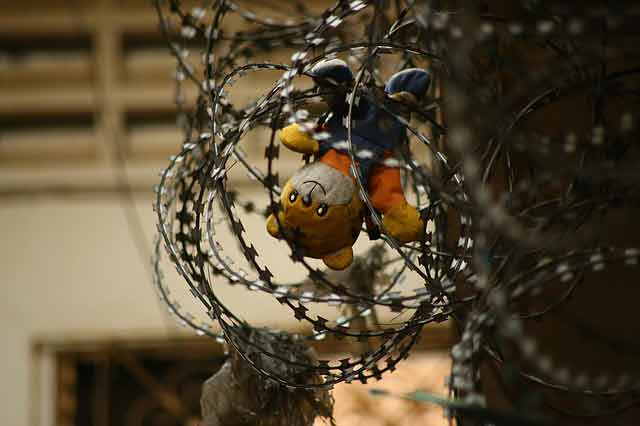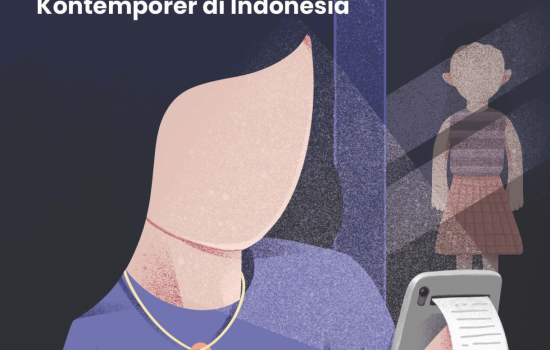The Government and the House of Representatives continued the discussion of the Anti-Terrorism Bill on 31 May 2017 in the Meeting Room of the Parliament’s Working Committee. The discussion is still focusing on the List of Issues (Daftar Inventarisasi Masalah) related to the arrest duration proposed by the government in the Anti-Terrorism Bill. In the government drafted Bill, the duration of arrest has been changed, from previously 7 days to 30 days.
From the latest monitoring done by the Institute for Criminal Justice Reform (ICJR), the debates and discussions related to the duration of arrest went pretty tough, the factions in the House of Representatives questioned and considered 30 days as too long and suggested a reduction. ICJR in its position since the beginning has asked the Parliament and Government to reconsider all of the conditions and risks that stand due to the extension of the arrest duration. ICJR highlighted some important notes related to the arrest in the Anti-Terrorism Bill, namely:
First, that arrest is not a detention, so the essence and understanding are very different. Referring to Section 1(1) of the Criminal Procedure Law, the arrest is an investigative action in the form of “temporary restraint the freedom of suspect or defendant”, which means that the duration of arrest is the duration of which the suspect or defendant “are” in “restraint” or under investigation, thereafter on the basis of the sufficient initial evidences from 1 day (in the Criminal Procedure Law) or 7 days (in the Anti-Terrorism Law) to take other moves for the sake of the investigation, such as to advance to the detention and so on. The arrest duration is not and does not include the “process” of pursuing or capturing the offender. The process of pursuing and capturing are two different things from the arrest duration that is arranged either in the Criminal Law or the Anti-Terrorism Law.
Based on ICJR monitoring, there is a slight shift in the understanding and essence of arrest in the parliamentary discussion, the argument from the Government regarding the difficulty of arresting the terrorists as if it likens the arrest duration with the process of pursuing and capturing. The process of pursuit and capturing is not limited by time in the criminal procedure law, but when the suspect or defendant has been caught, then the arrest duration starts counting and then proceeded to the next process.
Secondly, ICJR basically welcomes both the Government and the Parliament to evaluate the durationof arrest in the Anti-Terrorism Law, however, ICJR requests that the plan to extend or reduce the arrest duration has to be based on proven studies and calculations. It needs to be emphasized that the 7-days arrest in the current Anti-Terrorism Law is also an extension to the 1-day arrest duration in the Criminal Procedure Law. When the first Anti-Terrorism Law was drafted, the reasoning by the government also gravitated the same that it requires more time in the arrest due to difficult cases.
Based on the ICJR monitoring result, 7 days’ time in the Anti-Terrorism Law is already sufficient, this conclusion can be referenced from the effectiveness of the cases conducted under Anti-Terrorism Law. In our record, there is no suspect or defendant who has been found not guilty, so in the current procedural law perspective, the current process is effective enough to do the verification, including 7 days of arrest that is a long enough duration.
Thirdly, long duration of arrest could have a fatal consequence in human rights abuses. Up to now, the 7-days arrest has the potential to cause torture in the judicial process of terrorism cases. This is due to the arrest duration that is exceeding the normal time, it has the potential for incommunicado detention / placement of a person without access to the outside world. The condition with no access to the outside world poses a great risk for torture.
ICJR considers that the practice of torture would damage the professionalism and integrity of law enforcement officers because of the searching for evidences or disclosure will be pursued in ways that are inconsistent with the principles of criminal law and human rights.
On that basis, the ICJR asks the Parliament and Government to examine again the essence of the arrest, so the arrest does not associate with the pursuing duration or process to arrest the suspect or defendant. With this understanding, then the subsequent debate related to the arrest will be more easily done on an already strong basis.
Further, ICJR requests the Government and the House of Representatives to be carefully determine the duration of arrest. The decision to extend the duration of arrest in the Anti-Terrorism Bill must be proven and tested, extending the duration with no basis will just add another problem.




